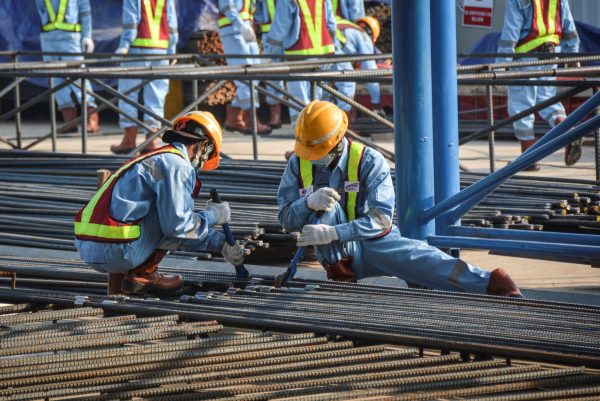Much of the present fear stems from a recent New York Times article analysing a provision in the regulation that allegedly orders foreign workers to learn the Indonesian language. The clause of interest is a single line in the regulation, buried in Article 26 of Chapter 3. Loosely translated, it states that employers of foreign workers are obliged to ‘facilitate Indonesian language education and training to foreign workers’. But reading this as a new development with substantial adverse effects is unnecessarily alarmist and ignores the significant continuities in Indonesia’s policy toward foreign workers.
Requiring foreign workers to learn Indonesian is not new. It has roots in two regulations, neither of which have been actively enforced. The first is a 2013 Ministry of Manpower and Transmigration regulation that requires foreign workers to communicate in the Indonesian language. The second is a government regulation from 2014 stipulating that foreign workers who do not meet required language proficiency will be sent for language training. Put simply, nothing has changed.
While it is possible that the new regulation represents a renewed commitment by the Jokowi administration to impose a foreign worker language requirement, this is unlikely for two reasons.
First, critical local economic stakeholders such as multi-national corporations are disproportionately affected by the policy. These stakeholders have the ability to impose significant economic repercussions upon Indonesia if they feel they are being disadvantaged by local language requirements.
Second, Indonesia is a labour exporting country (especially in the care sector) and remittances from overseas workers contribute meaningfully to the Indonesian economy. The possibility of other countries retaliating by subjecting Indonesian foreign workers to the same language requirements will be both politically and economically untenable.
These represent compelling reasons for the Jokowi administration to continue avoiding the enforcement of foreign worker language requirements.
Identifying the new regulation as keeping with the status quo rather than making a ground-breaking change allows us to discard several suggested explanations for the inclusion of the language clause. The argument that the language requirement is to crack down on the increasing numbers of illegal Chinese labourers in Indonesia is not compelling. Not only would these irregular and unregulated migrants not be subject to the new provision if enforced, but subjecting legal Chinese migrants to stringent language requirements is likely to push such migrants to illegal channels. If illegal Chinese labourers are indeed the primary concern, the availability of targeted policy tools (such as site checks) that are not a blanket language requirement are likely to be more effective and less politically costly.
So why was the provision included in the new presidential order? After all, if a policy is not being enforced, why include the same wording again?
The popularity among Indonesians of symbolically subjecting foreign workers to a local language requirement is crucial to understanding the language clause. Even if the policy is not actively enforced, the clause’s existence enables the Jokowi administration to point to it as evidence of the government’s commitment to nationalism and prioritisation of Indonesian culture and language. Amid concerns surrounding foreign investment, having policy clauses that affirm the primacy of Indonesia provides the Jokowi administration with legitimacy.
Perhaps the most important takeaway here relates to the stickiness of policy wording. The continuity of an unenforced policy is less a response to existing political opposition and more an effort to avoid the potential political backlash of changing the policy. The nuance here between inaction and action is noteworthy. The new regulation is not a radical departure but merely the quiet continuation of existing policy that seeks to balance domestic political priorities and continued economic growth. If the current language of the regulation is a holdover rather than an intentional shift in policy intent, repercussions are unlikely to be severe.
It is easy to misinterpret the presidential regulation because of the gaps that exist between policy wording, policy enforcement and policy intent. Understanding previous regulations is both instructive and critical.
A comment obtained by the New York Times from the American Chamber of Commerce in Indonesia highlighted a desire for ‘predictable rules’. The Jokowi administration’s language clause in the new regulation is nothing but predictable. There is little reason to read the inclusion of the language clause as a radical change. Business as usual can continue.
Tommy KS Koh is a Master of Public Policy and Global Affairs candidate at the University of British Columbia (UBC) and a Graduate Student Researcher at UBC’s Institute of Asian Research.

